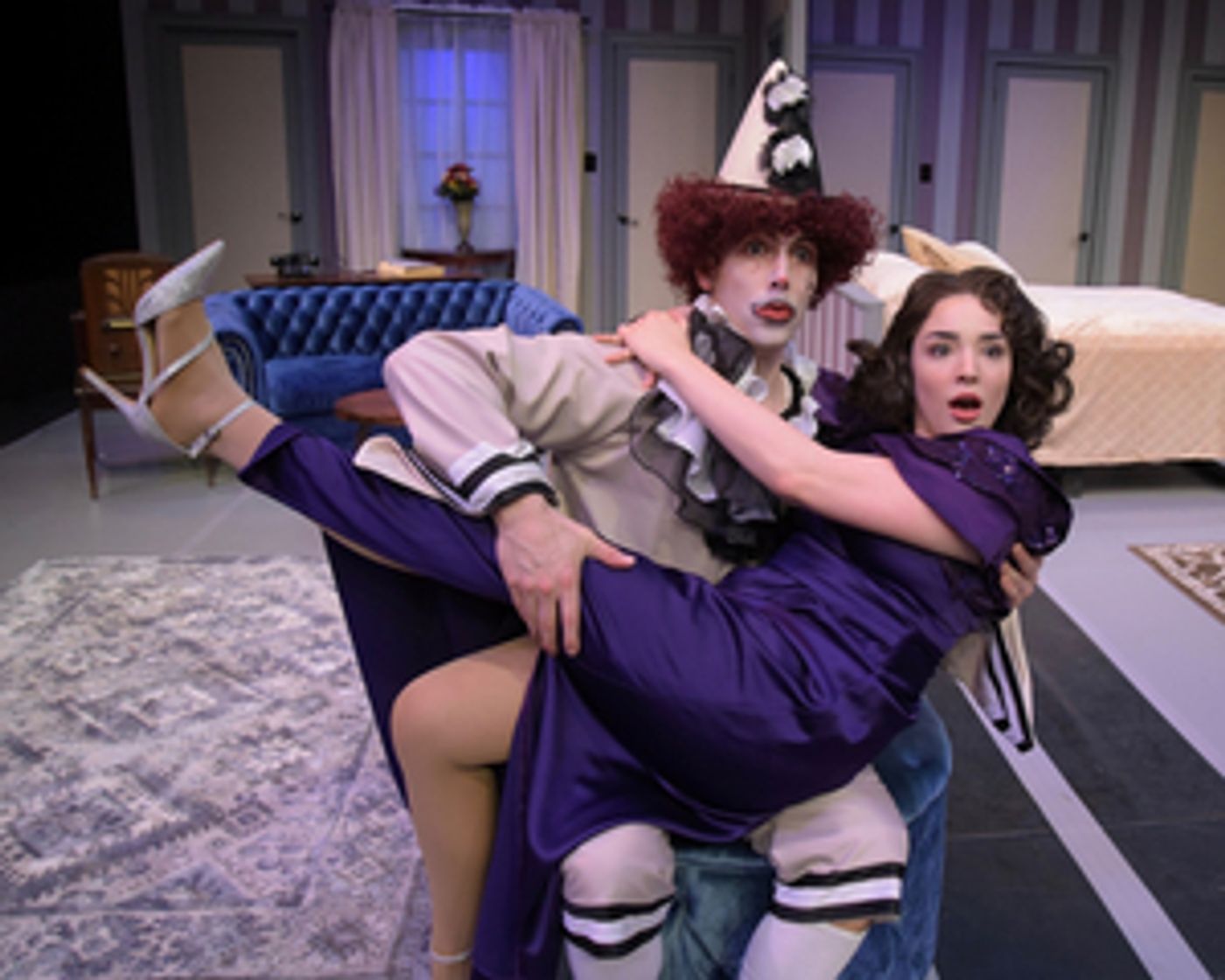Review: LEND ME A TENOR at Westchester Broadway Theatre Sends In the Clowns

Like a famous, old candy bar commercial sang, "Sometimes you feel like a nut... sometimes you don't."
For the times you do, though, a stage farce is the ticket to let yourself go, as you go along in totally suspended disbelief with the hellzapoppin hijinks on stage. After all, who says grown-ups aren't allowed to groan every now and then in the name of mirth.
Ken Ludwig's Lend Me a Tenor, now at Westchester Broadway Theatre through Jan. 26, is a soap opera of a farce (which may not be too different from saying it's a farce of a soap opera). Either way, it's fun enough, if not Marxian funny in the manner of A Night at the Opera.
Get a Free Dinner
There's another reason to give it a try. To underscore the distinction of Lend Me a Tenor as the first straight play (not a musical) in the dinner theater's 45-year history, it is doing something else for the first time: not charging for the dinner portion of the meal-and-show package. You pay $57 a person for both. Quite a deal for a very tasty meal.
Mr. Ludwig's farce fared very well when it opened on Broadway run in the late '80s, snaring several prestigious awards. Since then, it's been revived on The Great White Way and has become a favorite on the local theater circuit. (914-592-2222; www.BroadwayTheatre.com).
'Il Stupendo'
It may not be a Broadway musical, but music does play a leading role in the show. In fact, while Lend Me a Tenor's tenor is typically farcical -- breakneck pace, mistaken identities, misunderstandings, overactive hormones, sexual wordplay, frenetic and improbable physicality, and a panoply of slamming doors -- what sets it apart from others of its ilk is the musical conceit that drives the nutty plot.
That reaches its high note as the two tenors -- opera star Tito (Joey Sorge), known as "Il Stupendo," and opera wannabe Max (J.D. Daw) -- perform a complete duet that is all business, no joking intended.
Opera's Tragic Clown
Max, assistant to the opera company's manager, is the play's titular tenor, who is pressed into duty in an emergency when Tito topples over into a deathly unconsciousness after ingesting several muscle relaxants too many to calm his nerves before taking the stage for Pagliacci (Clowns), best known for the iconic aria Vesti La Giubba, sung by a clown who is crying on the inside because of his wife's newfound infidelity.
By the time Il Stupendo emerges from his ill stupor, Max is gone, ready to stand in for him. Tito, unaware of the substitution, rushes to the theater to make the curtain. He becomes detained by the police, who think he is delusional, but Tito escapes their clutches and the obligatory farce runaround is off and running.
Launching Laughs
With both Tito and Max dressed in identical clown regalia, the audience is asked to accept that the other characters would readily mistake one for the other. And we do accept it, because it's a farce, for goodness' sake, not a reality TV show. That visual gag becomes the fulcrum on which many a hearty laugh is launched in Act II. The first act moves at a more purposeful pace, as Act I farce set-ups are wont to do.
Running in circles around the twin tenors are a cacophony of characters that include habitually harried and fuming opera boss Saunders (Philip Hoffman), Tito's volcanic wife Maria (Kathy Voytko), Max's main squeeze Maggie (Molly McCaskill), soprano diva Diana (Hannah Jane McMurray), opera patron grand dame Julia (Tregoney Shepherd), who is fun to watch as a Margaret DuMontesque foil, and the bouncy, brazen bellhop who irritates Saunders like sandpaper (Sam Seferian).
The play is crisply and cannily directed by Harry Bouvy, and the functional, period set design (evoking a 1930s hotel, with a cut-away wall separating a sitting room on the left from the suite's bedroom (on right), is by Steve Loftus.
Reader Reviews
Videos

